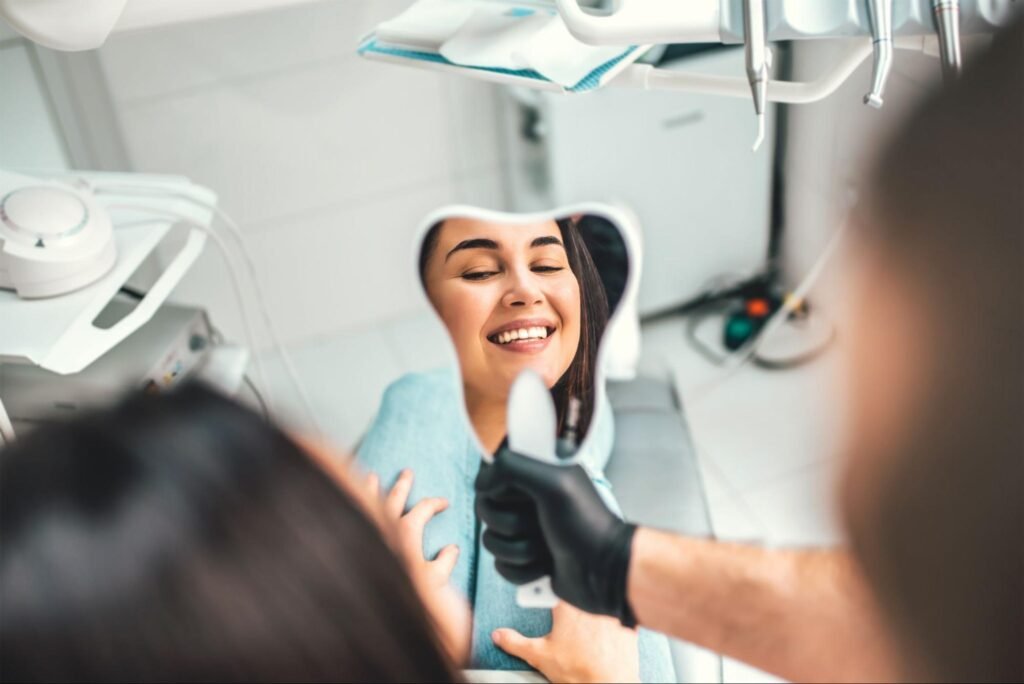
Your recovery after dental implant surgery depends on more than just rest—what you eat plays a major role. At Sunna Dental Birmingham, we help patients recover successfully by guiding them on the best post-operative nutrition. Eating the right foods protects the healing site, prevents complications and ensures your dental implant Birmingham treatment delivers long-term success.
This expert guide covers what to eat (and avoid), how to stay nourished and when you can return to normal meals.
Why Your Diet Matters After Dental Implants
After getting a dental implant, your gums and jawbone begin a critical healing process. In the early days, the surgical site is highly sensitive. Eating hard, spicy or chewy foods can delay healing, cause irritation and even increase the risk of implant failure.
Following a soft, nutrient-rich diet helps reduce inflammation, supports tissue regeneration and minimises any trauma to the implant area—especially vital for complex or full-mouth dental implant Birmingham procedures.
Best Foods to Eat After Dental Implant Surgery
For the first 48 to 72 hours, stick strictly to soft or liquid foods. After this period and only with your dentist’s clearance, gradually introduce soft solids.
Timeframe | Recommended Foods |
Days 1–3 (Soft or Liquid Only) | – Lukewarm soups (avoid anything hot) – Mashed potatoes or blended vegetables – Protein shakes or meal replacements – Oatmeal or porridge – Applesauce – Yoghurts and smoothies – Scrambled eggs |
After Day 3 (Soft Solids) | – Cooked pasta or soft noodles – Well-steamed or boiled vegetables – Soft fish (e.g., cod, haddock) – Cottage cheese or tofu – White rice or quinoa – Soft bread without crust – Eggs in any soft form |
Pro Tip: Avoid using straws. The suction can dislodge blood clots or interfere with healing at the implant site.
Foods to Avoid After Dental Implant Surgery

To protect your dental implant and prevent infection, avoid the following foods in the first 7–10 days:
- Crunchy or hard foods (e.g., crisps, raw carrots, nuts)
- Chewy or sticky items (gum, toffees, crusty bread)
- Spicy or acidic dishes (chilli, citrus fruits, vinegar-based meals)
- Very hot food and beverages (increases bleeding and slows healing)
- Alcohol and smoking (these delay recovery and increase implant failure risk)
Our Sunna Dental team provides a complete aftercare guide to ensure you feel confident during your healing phase.
Hydration and Nutrition Tips
Supporting your body with hydration and nutrients will significantly improve recovery speed after your dental implant Birmingham procedure.
- Stay well hydrated with water—this helps flush out toxins and supports tissue healing
- Avoid straws, as they create suction pressure that can harm the surgical site
- Keep all food lukewarm—avoid extreme temperatures
- Eat a nutrient-rich diet with plenty of vitamins A and C, calcium and protein
- Avoid caffeine and alcohol for at least 72 hours after surgery
How Long Should You Stay on a Soft Food Diet?
Most patients should continue a soft diet for 7 to 10 days, but this can vary based on how many implants were placed and how complex the surgery was. If you’ve undergone a full arch or multiple unit dental implant Birmingham procedure, recovery may require a longer restricted diet.
Your Sunna Dental clinician will provide tailored advice based on your case and progress.
Eat Well, Heal Faster
The right food choices after implant surgery aren’t just about comfort—they directly impact how well your body heals and how secure your implant becomes.
A carefully managed soft food diet, rich in healing nutrients, is essential in the first phase of recovery. As your Birmingham dental implant site strengthens, your dentist will guide you through a safe return to regular meals.
Need guidance tailored to your recovery? We offer personalised implant aftercare consultations for every patient.


